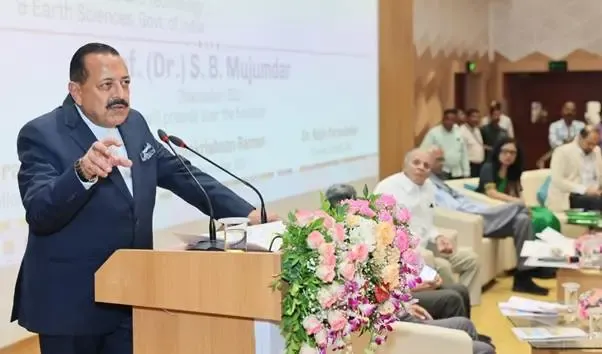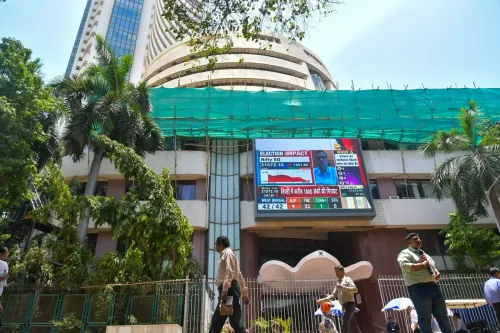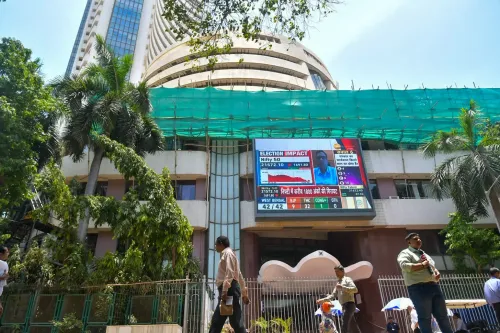Is Biotechnology the Key to India's Future Economy, Space Research, and Healthcare Solutions?

Synopsis
Key Takeaways
- Biotechnology is identified as the cornerstone of India's future economy.
- The sector has grown significantly, from $10 billion in 2014 to $130 billion.
- Future targets aim for $300 billion within five to seven years.
- Government policies like Bio-E3 are designed to foster sustainable solutions.
- Space-biotech research is expanding, with new fields like space medicine.
New Delhi, Sep 19 (NationPress) Biotechnology is set to be the fundamental force behind India's upcoming economy, along with advancements in space exploration and healthcare solutions, stated Jitendra Singh, Union Minister of State (Independent Charge) for Science and Technology, during a recent address.
While speaking at Symbiosis International University in Pune, Singh referred to biotechnology as the “next industrial revolution.”
The Minister highlighted how India has positioned itself as a global leader in biotechnology, citing achievements such as the development of the indigenous Covid-19 vaccine, the HPV vaccine for preventing cervical cancer, breakthroughs in new antibiotics, and initiatives focused on gene sequencing.
“The economy of the future will revolve around biotechnology, similar to how the last revolution in the 1990s was dominated by information technology,” Singh remarked.
He also emphasized the government's commitment through initiatives like the launch of the Bio-E3 policy—which stands for biotechnology for environment, economy, and employment—aiming to create sustainable solutions and job opportunities for the burgeoning youth demographic in India. Singh pointed out that the biotechnology sector has surged from $10 billion in 2014 to $130 billion, with aspirations to reach $300 billion within the next five to seven years.
Additionally, Singh noted India's increasing involvement in space-biotech research, referencing experiments conducted by astronaut Shubhanshu Sharma aboard the International Space Station (ISS), which focused on muscle atrophy, the cognitive impacts of electronics, and the growth of algae and proteins in microgravity.
He mentioned that these efforts have led to a memorandum of understanding between the Department of Biotechnology and the Department of Space, signaling the rise of new domains such as space medicine.
Stressing the importance of comprehensive healthcare, the Minister indicated that the Covid-19 pandemic has underscored the necessity of integrating traditional Indian medicine systems with contemporary scientific practices, noting that physicians worldwide turned to Ayurveda and homeopathy during the crisis.
Moreover, he advocated for the development of a skilled workforce through startups and entrepreneurship in life sciences, highlighting biotechnology as a sector that fosters both employment and innovation.








